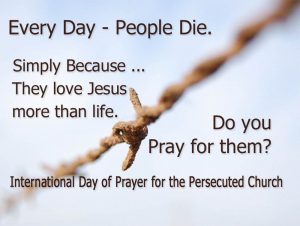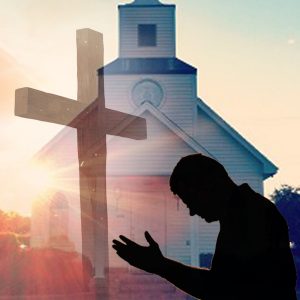
Recalling the history of the early Pilgrims, Governor William Bradford wrote concerning their faith, “God gave them health and strength in a good measure; and shewed them by experience ye truth of the word.” And he quoted Deuteronomy 8:3, “He humbled you, causing you to hunger and then feeding you with manna, which neither you nor your ancestors had known, to teach you that man does not live on bread alone but on every word, that comes from the mouth of the Lord.”
Thanksgiving is all about God, and recognizing who He is and all the blessings He has freely given us. In a world that has all but pushed God away in every sphere of society it is amazing that we still celebrate Thanksgiving, because how can we celebrate this holiday if we don’t acknowledge our Lord and Creator.
Thanksgiving is such a great holiday, but it is not an end in itself; thanksgiving must lead us into something. Thanksgiving should lead to something that is infinitely more significant.
In Luke 17 we read about a man that was truly thankful. This account from the life of Jesus took place while he was on his way to Jerusalem, on the way he encounters ten men with leprosy. At that time and according to the Law of Moses, people with leprosy had to wear torn clothing and live on their own outside of the city, waiting for their probable death.
They had nothing to lose and they cried out to Jesus, calling him Master, recognizing that Jesus was the messiah. Sadly, it is often only those who are desperate who recognize their need for Jesus.
Jesus heard their cry for help and in response he told them to go and show themselves to the priests. The implication was clear to the lepers, according to the law, people with a skin disease had to be examined by a priest, who would determine whether they were clean allowing them to be re-integrated into society.
They hurried away to do just this, and Luke 17:14 says, “as they went, they were cleansed”. They didn’t go and sit back under the tree and wait for their symptoms to disappear. The Bible is clear that they were healed when they went in faith. Can you imagine their emotional roller-coaster they must have gone through? They started walking and after one mile they still were sick, maybe after two miles, they still saw no sign of relief. Every step was a step in faith and as they continued in faith they were healed. We are not told when the healing took place, but they were healed as they walked in faith. Faith in the healing power of Jesus often requires us to obey before we see the full evidence of God’s work within us
From the account in Luke’s Gospel it seems that all ten are healed, but only one man, a Samaritan comes back praising God (Luke 17:15-16).
The people of Samaria were of mixed Israelite and foreign descent, so the Jewish people did not accept them as part of the Jewish community. The Samaritans were despised by Jews for both ethnic and religious reasons; there was mutual hatred by the Samaritans toward Jews.
We don’t know the nationalities of the other nine, but the response Jesus gave in verse 18 seems to indicate that the other nine were Jews. This Samaritan fell at the feet of Jesus and worshipped loudly. He recognized and glorified God, and this is the key, his thanksgiving led to Worship. Worship is a natural response of a heart filled with gratitude.
It would have been logical for him to have followed the other men and gone to the temple, but he first came to the Lord Jesus with his sacrifice of praise. The law required that after being inspected by the priests at the temple, one would have to offer a sacrifice to God. But this Samaritan didn’t even get to the temple, he turned around and ran to Jesus, this pleased the Lord more than all the sacrifices the other men offered, even though they were obeying the Law. And instead of going to the priest, the Samaritan became a priest, and he built his altar at the feet of Jesus.
If you know Jesus Christ as your Lord and Savior, you are a royal priesthood with a purpose. 1 Peter 2:9 says, “But you are a chosen people, a royal priesthood, a holy nation, God’s special possession, that you may declare the praises of him who called you out of darkness into his wonderful light.”
Looking at our last verse, I saw something that I had never discovered before in this passage, in verse 19 Jesus said to the Samaritan man, “Rise and go; your faith has made you well.”
At first glance, this seems to tell us that the faith of this man is the reason for his physical healing, and yes to a certain extent it is. But the word used in the Greek to indicate being made well comes from the root word “sozo”.
What Jesus really said to the man was, “your faith has saved you”
This man was grateful, and he knew the reason for his healing, he immediately came to Jesus and worshipped him.
Dante Rossetti once said; “The worst moment for the atheist is when he is really thankful, and has nobody to thank”.
The essence of Thanksgiving is that it is an act of worship. True worship flows from gratitude which comes from our relationship with our Heavenly Father.
Are you worshipping God today? Is your worship coming from a heart of gratitude?




